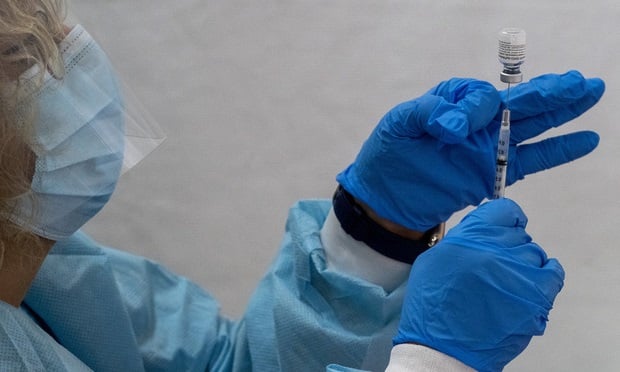 Until the United States reaches herd immunity from COVID-19, church staff, volunteers and members are still at risk of spreading the disease. Here, a pharmacist fills a dead volume syringe with the Pfizer-BioNTech COVID-19 Vaccine at a pop-up vaccination site at St. Luke's Episcopal Church in the Bronx borough of New York. (Photo: Mary Altaffer/AP)
Until the United States reaches herd immunity from COVID-19, church staff, volunteers and members are still at risk of spreading the disease. Here, a pharmacist fills a dead volume syringe with the Pfizer-BioNTech COVID-19 Vaccine at a pop-up vaccination site at St. Luke's Episcopal Church in the Bronx borough of New York. (Photo: Mary Altaffer/AP)
One word is top of mind for many Americans right now: Vaccine.
Recommended For You
Want to continue reading?
Become a Free PropertyCasualty360 Digital Reader
Your access to unlimited PropertyCasualty360 content isn’t changing.
Once you are an ALM digital member, you’ll receive:
- Breaking insurance news and analysis, on-site and via our newsletters and custom alerts
- Weekly Insurance Speak podcast featuring exclusive interviews with industry leaders
- Educational webcasts, white papers, and ebooks from industry thought leaders
- Critical converage of the employee benefits and financial advisory markets on our other ALM sites, BenefitsPRO and ThinkAdvisor
Already have an account? Sign In Now
© Touchpoint Markets, All Rights Reserved. Request academic re-use from www.copyright.com. All other uses, submit a request to [email protected]. For more inforrmation visit Asset & Logo Licensing.







